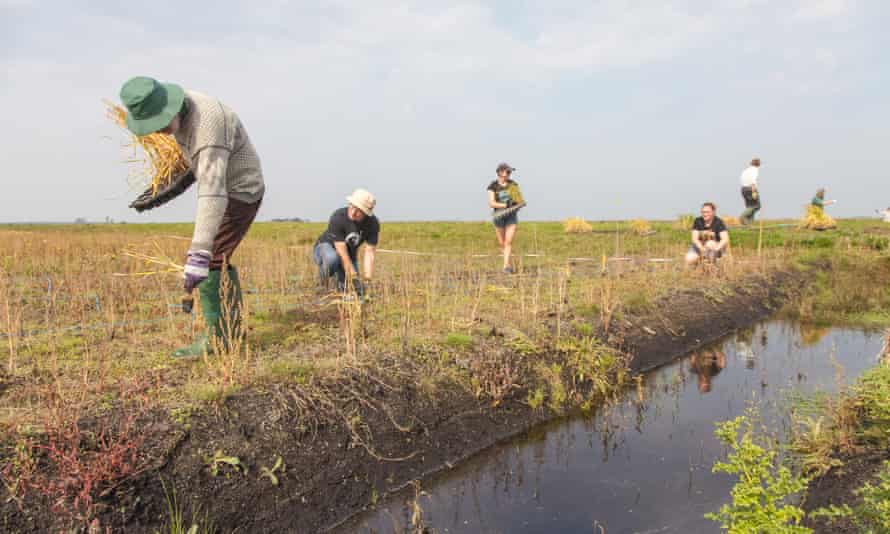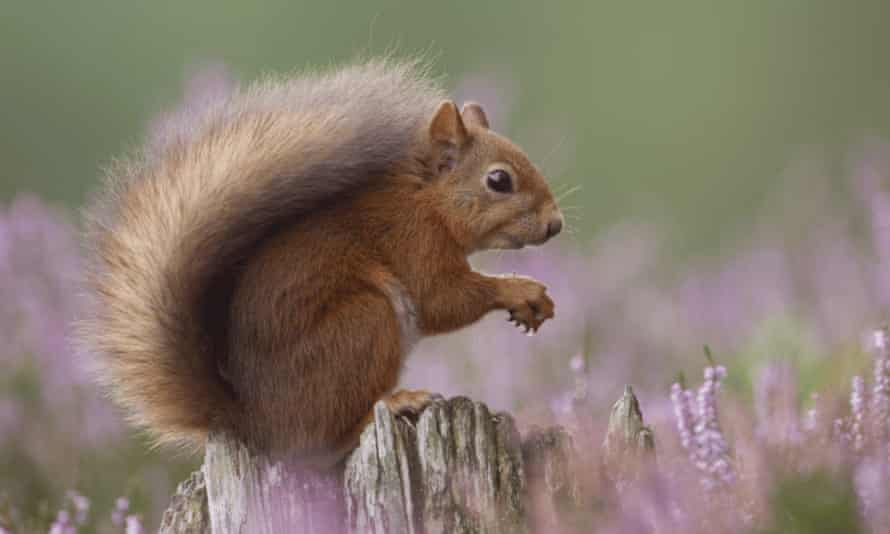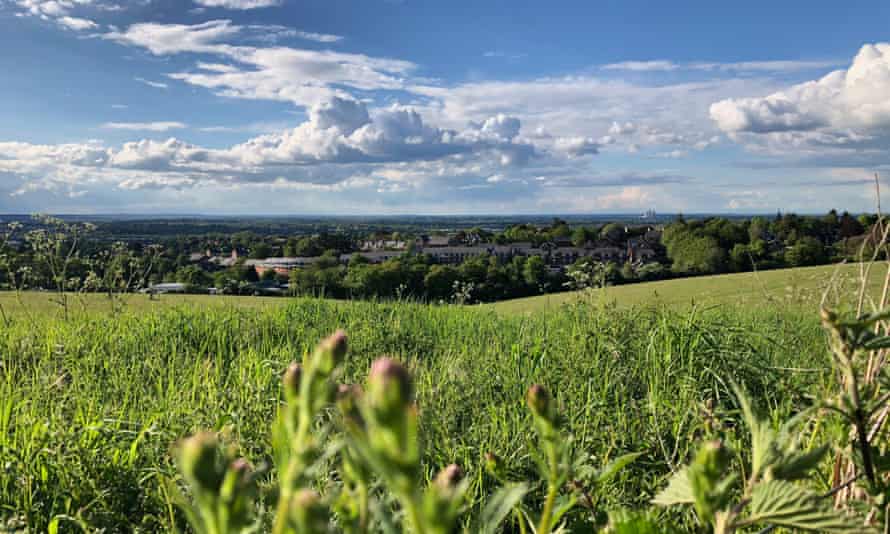With its lush broad-leaved trees home to breeding hazel dormice, barbastelle bats, and butterflies in woodland glades, Pencnwc Mawr Wood in Pembrokeshire is a rare surviving remnant of the Welsh temperate rainforest, scarcer even than tropical rainforests.
Once stretching along the western uplands and into deep river valleys it shrank over the years, but now, in a project to restore habitats from chalk grassland to peatlands, the future of Pencnwc Mawr Wood has been secured.
The UK is one of the most nature-depleted countries in the world, with once-common creatures, such as hedgehogs, red squirrels and sparrows now critically endangered, and huge reductions in the abundance of wildlife across the board. The Wildlife Trusts has said it is determined to reverse this trend, announcing that it had raised £25m in a year for nature projects. The network of wildlife charities said it had raised the money in the 12 months since it launched a £30m fundraising appeal as part of its vision to help nature recover across 30% of the UK’s land and sea by 2030.

The Wildlife Trusts warns that the government’s own pledge to protect 30% of land for nature falls short, because it includes national parks and areas of outstanding natural beauty, which are not wildlife designations and are often severely nature-depleted, with just 3% of land genuinely protected for nature. It says only areas that are protected and well managed for nature should be included in the total and is calling for a new “wildbelt” designation in England to protect land that is put into recovery for nature.
Craig Bennett, chief executive of the Wildlife Trusts, said it was fantastic that the public wanted to support its work to reverse wildlife declines and address the climate emergency.
“But this is only the first step to mend our broken natural world by 2030,” he added.

He warned that parts of the government’s agenda, such as weakening habitat regulations that protect wildlife and planning rules, threatened to undermine work for nature.
“The government needs to invest far more in nature – we know that more than £1bn annually is needed to create and restore wild places,” he said.
The Trusts has 35 projects under way as part of the 30 by 30 programme, ranging from the acquisition of chalk grassland at Pewley Down Fields by Surrey Wildlife Trust, to increasing the size of the rare temperate woodland at Pencnwc Mawr Wood by Wildlife Trust of South and West Wales.

Bedfordshire, Cambridgeshire and Northamptonshire (BCN) Wildlife Trust is planning to buy land to join up its Great Fen project, and expand field scale “wet farming” trials to protect carbon-storing peat. Meanwhile, Somerset Wildlife is rewetting drained peat soils to store carbon and allow nature to take over a former dairy farm, while Dorset Wildlife Trust is leading England’s first, large-scale, community rewilding project on former farmland.
Broadcaster and biologist Liz Bonnin, president of the Wildlife Trusts, said it was an astonishing sum of money to raise in such a short time.
“Together, we can bring nature back – and we can do it at the scale needed to address our biodiversity and climate crises. Time to roll up our sleeves and get the job done!”, she said.
Nearly all of the nature reserves are free to enter and have public access to different areas of the sites. Head to wildlifetrusts.org to plan your visit. The Wildlife Trusts nature recovery has an online map




